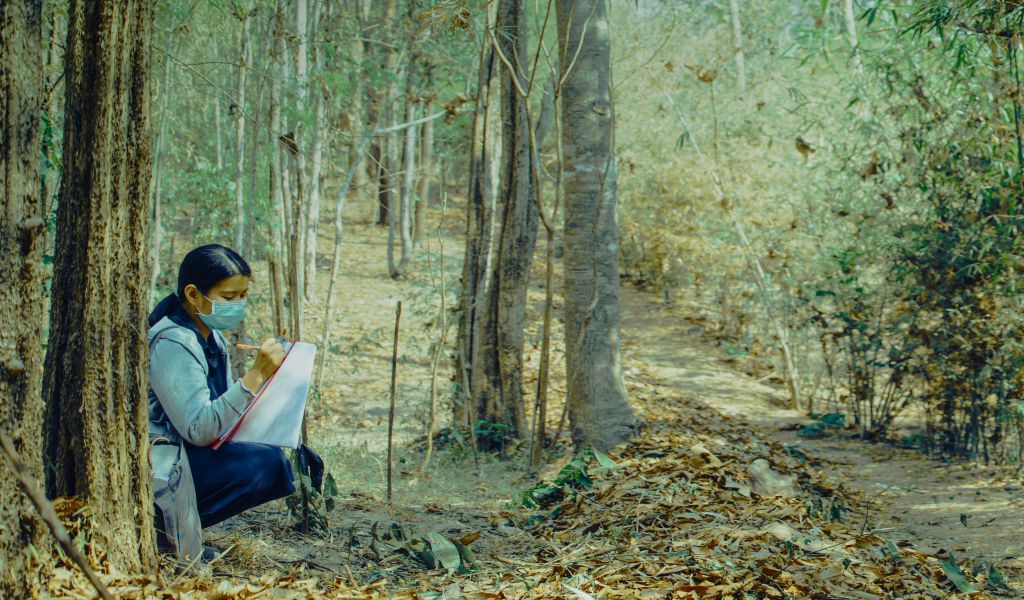Explore Community of Practice is supporting the development of 19 research proposals on forest landscape governance

Explore announced the results of its first Call for Concept Notes on 18 February 2022 at a virtual workshop hosted by the Global Landscapes Forum. Explore is a research network and community of practice dedicated to expanding and applying knowledge on forest landscape governance in Southeast Asia. It is the only research network in the world focused on forest landscape governance.
Explore received 71 concept notes in response to its first call for proposals. After careful review, the selection committee chose to fund the development of 19 concepts into high-quality and innovative research proposals. Nineteen research teams will receive grants of US$8,750 to US$20,000 as well as training and mentorship.
“Response to our Call for Concept Notes was tremendous,” said David Gritten, Explore program manager. “Concepts came from teams that included 292 researchers. We were delighted that 149 were women. The concepts covered forest governance in 12 countries and involved 84 universities, non-governmental organizations, governments, and the private sector. We are achieving our goal of equal representation by women and multi-stakeholder engagement. This is what we need to develop solutions to the complex transboundary challenges we face in forest governance in the region.”
The teams must submit the final drafts of their research proposals by 30 July to be considered for Explore research grants.
Launched in October 2020, Explore is funded by the Swedish International Development Cooperation Agency, Sida. RECOFTC hosts the network in partnership with CIFOR-ICRAF.
The 19 research teams met for the first time virtually on 18 February and they will begin training courses in March.
The following research concepts will be developed into full research proposals:
- Assessment of current status for the development of forest landscape governance to contribute to SDGs
- Governance of forest landscape restoration in watersheds of Lao PDR and Thailand: Barriers and opportunities for community participation
- Promoting sustainable forest landscape management in northwest Viet Nam
- Fair for whom? Comparing politics, power, and precarity in transformations of tropical forest-agriculture frontiers in Southeast Asia
- Converting forest land to hydropower dam construction: Effects on the livelihood, poverty, food security, and indigenous culture of forest-dependent ethnic minority communities
- Empowering community groups through forest landscape restoration, bioethanol, and livelihoods based on the palm tree species Arengia pinnata
- Towards the resiliency of selected socio-ecological production landscapes in Southeast Asia
- Co-adaptive forest management through climate-smart technology and communal social capital
- Reducing forest dependence in the time of the COVID-19 pandemic: A transboundary analysis using a multi-disciplinary approach in Cambodia, Lao PDR, Thailand and Viet Nam
- Optimizing forest planning under the influence of women and government policy
- Returning to an ecological balance in traditional agroforest economies, harnessing local wisdom, digitalization, and big data: A case study on village forest landscape in Merangin District, Jambi Province, Indonesia
- Participatory path analysis of forest, water, energy, and food links towards sustainable forest landscape governance of transboundary society in East Amfoang Sub-Districts
- Promoting women's roles in community forest development in communities campaigning for land reform: The case of the Southern Peasants Federation of Thailand (SPFT)
- The role of women in agroforestry management from conservation to the utilization of natural resources
- The role of policy and institutions in collaborative management of the Batang Toru Landscape
- Collaborative forest landscape governance towards a resilient and sustainable future
- Gender perspectives on natural resource governance in Southeast Asia: Lessons learned from Indonesia and Lao PDR
- Gender, climate change, and forest governance: Insights from Southeast Asia
- Products and services, including climate change mitigation, provided by indigenous multipurpose trees species: Case studies from South Sulawesi, Indonesia, and Bac Kan, Viet Nam
###
For more information on these research initiatives contact Explore.secretariat@recoftc.org.

